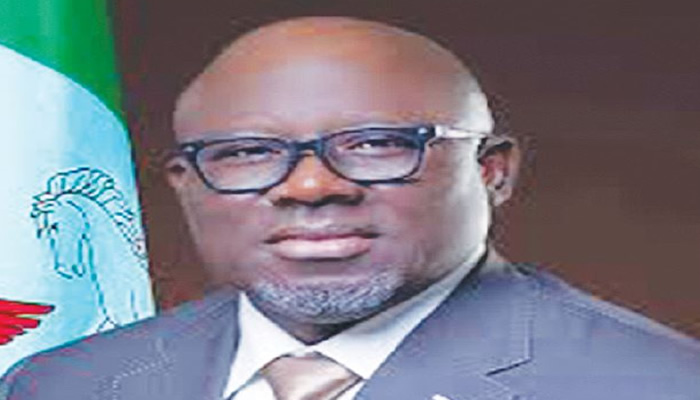
Delta State Governor Sheriff Oborevweri has emphasized the need for coordinated efforts between the Federal and Sub-national governments in the Niger Delta region to tackle the complex challenges affecting the residents of the oil-rich states in the Niger Delta.
Speaking during the 6th National Council on Niger Delta meeting in Asaba, Delta State’s capital, Oborevweri, represented by Deputy Governor Mr. Monday Onyeme, urged the federal government to drive economic growth and development in the region.
Addressing the attendees, he stated, “I extend a warm welcome to all present at this Technical Committee meeting of the 6th National Council on the Niger Delta organized by the Ministry of Niger Delta Development.
“The Niger Delta has been grappling with significant oil spills for years, primarily attributed to industrial activities involved in oil and gas extraction and transportation.
“These frequent spills have marked the Niger Delta as one of the most polluted regions globally.
The ecological balance of the region’s ecosystems has suffered extensive and ongoing damage due to these spills, impacting the environment and the communities dependent on its resources.
“The region faces environmental, security, and infrastructural hurdles such as gas flaring, illegal oil activities, and local crude refining leading to environmental degradation and the significant issue of oil spillage resulting in aquatic destruction.
“A strategic and collaborative approach is essential between the Federal and Sub-national governments in the Niger Delta to combat the complex challenges facing the residents of the oil-rich Niger Delta states and steer the region toward economic growth and development.”
The governor highlighted challenges including agricultural productivity, inadequate East-West road construction, erosion, persistent flooding due to the non-dredging of the River Niger, and neglect of regional seaports impacting economic activities and employment within the region. He emphasized that the meeting’s theme, “Stimulating Strategies For Economic Growth And Development In The Niger Delta Region,” was fitting.
Upon conclusion of the meeting, he urged the committee to develop a clear roadmap to guide the region towards peace, progress, and prosperity, leveraging its abundant human and natural resources.
In his opening remarks, Dr. Shuaib Belgore, the Permanent Secretary of the Ministry of Niger Delta Development and Chairman of the Technical Committee, described the meeting as a gathering of privileged technical members and stakeholders to discuss matters shaping the future of the Niger Delta region.
Belgore noted that the National Council on Niger Delta serves as the top policy advisory body to the government on Niger Delta region development.
“Our primary responsibilities are to define the development goals of the region’s residents and ensure these objectives drive the development agenda and intervention programs.
“The Council serves as a platform for government agencies, development partners, and other stakeholders to exchange ideas, share knowledge, and collaborate on initiatives fostering innovation and growth in the region.
“President Bola Ahmed Tinubu’s administration has shown dedication to enhancing the living conditions of the region’s residents, reflecting in the Renewed Hope Agenda and the Ministry’s current Ministerial Mandate.”
Belgore expressed disappointment in the minimal stakeholder response to the implementation of resolutions from the 5th NCND meeting in Uyo, Akwa Ibom State.
